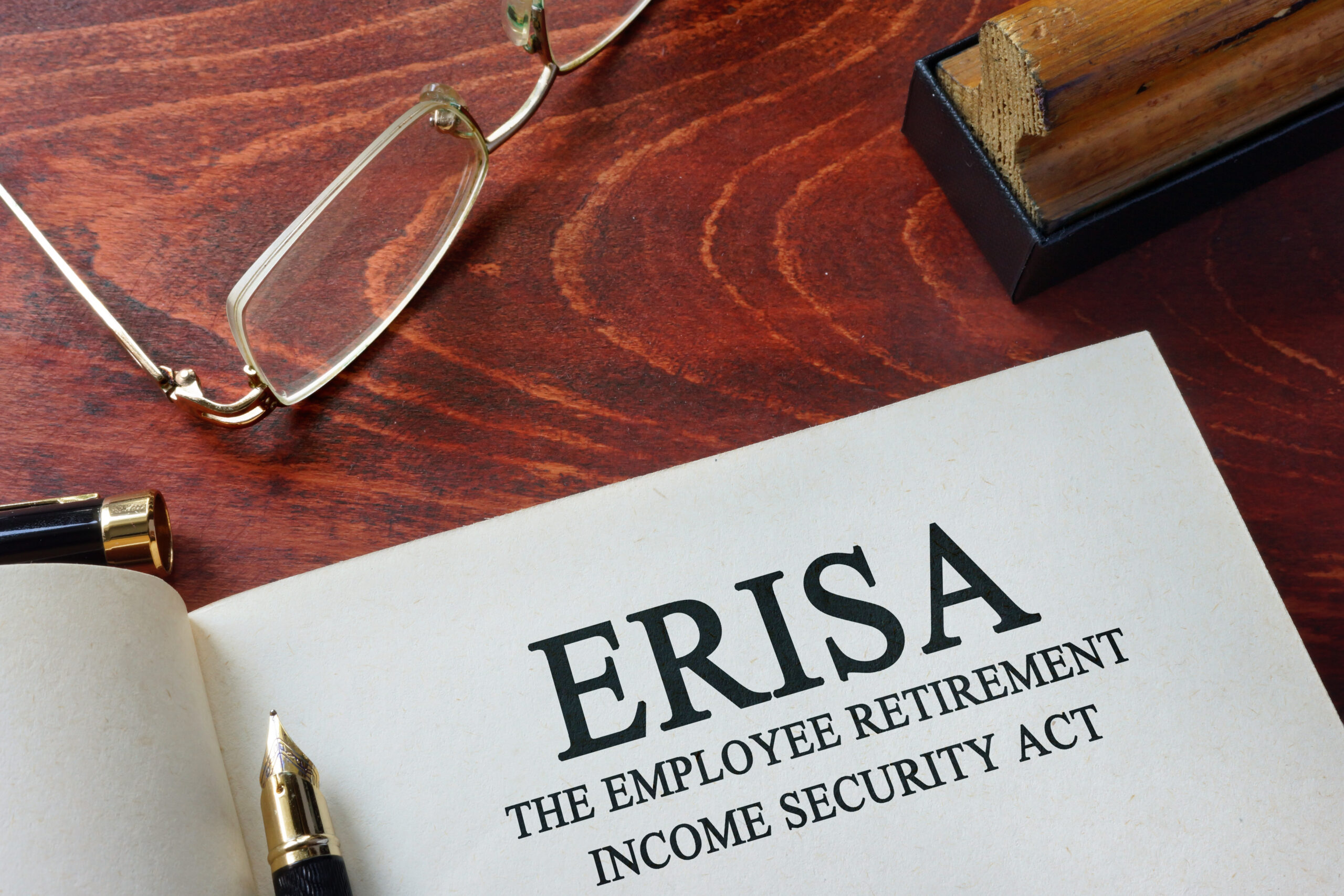By: Editorial Staff, Date: April 9th, 2024
In the intricate landscape of employee benefit plans, understanding and fulfilling ERISA fiduciary duties stand as pillars of responsibility for plan sponsors and administrators alike. ERISA imposes stringent obligations on fiduciaries, requiring them to act solely in the interest of plan participants and beneficiaries. Yet, navigating these duties can be a daunting task due to the evolving legal landscape and shifting regulatory frameworks.

This article will serve as a compass for navigating ERISA fiduciary duties, illuminating core principles, and providing actionable insights to excel in the role of fiduciary.
The Four Core Fiduciary Duties
- Duty of Loyalty/Exclusive Benefit Rule
A fiduciary must always prioritize the interests of its plan participants and beneficiaries. This entails ensuring that plan assets are used exclusively for their benefit or to cover any reasonable administrative costs.
When plan assets are used for administrative expenses, fiduciaries must ensure that these costs are reasonable by regularly monitoring service providers, their agreements, and overall plan operations. Verifying that vendors provide necessary fee disclosures and regularly comparing fees with similar vendors in the market can help ensure that the costs are reasonable.
It is also important for fiduciaries to distinguish between plan assets and non-plan assets, as well as to determine whether their decisions or actions represent administrative or settlor functions. This is because plan assets shouldn’t be used for expenses related to settlor functions.
- Duty of Prudence/ Prudent Expert Rule
A fiduciary must act with the same level of care, skill, and diligence as a prudent person in a similar situation. Under the Prudent Expert Rule, prudence is judged objectively, disregarding the fiduciary’s subjective intent or good faith. Instead, the focus is on comparing the fiduciary’s actions with what a hypothetical prudent expert would have done.
When assessing the prudence of a plan fiduciary, the Department of Labor (DOL), court, or other reviewing entity evaluates not only the outcome of the decision but also how the fiduciary arrived at that decision.
A crucial aspect to consider is whether fiduciaries are acting prudently when selecting and overseeing a plan’s service providers, which is often their responsibility. Fiduciaries also need to regularly monitor the performance of these providers. With the introduction of new transparency reporting and disclosure requirements in recent years, the duty to monitor service providers has become even more important. This is because increased access to public information has led to more lawsuits alleging breaches of fiduciary duty. While these lawsuits mainly focus on actions by Third Party Administrators, they often also involve claims against the plan sponsor and other individuals who acted as fiduciaries for the plan.
- Duty of Diversification
A fiduciary must diversify plan investments to reduce the risk of significant losses unless it is imprudent to do so given the circumstances or if there are plan assets held in trust.
This requirement often arises in retirement plans when assets are held in trust. Health and welfare plans sponsored by employers are typically either fully insured or self-insured, with benefits paid from the employer’s general assets. However, if a health and welfare plan is funded by a trust, such as a self-insured multiemployer plan, MEWA, or large employer plan utilizing a trust, it would be subject to this diversification duty.
- Duty to Follow Plan Terms
A fiduciary must adhere to the written terms outlined in the governing documents when administering the plan. This obligation commonly arises when employees seek exceptions to obtain additional benefits beyond what is covered in the plan’s written terms.
Typically, the plan includes a discretionary clause granting the employer the right to interpret the terms for benefit eligibility. If the employer decides to make an exception, it effectively interprets the plan terms to allow it and must consistently apply this interpretation to similarly situated employees. Essentially, granting exceptions sets a precedent under ERISA, potentially leading to claims for breach of fiduciary duty or benefit claims by employees denied under similar circumstances.
Some Recommended Practices to Excel in Your Role
- Establish a governing body.
Establish a monitoring or governing body for the plan, which may include potential fiduciaries, employees, and plan participants. Although fiduciary responsibilities are allowed to be shared among various parties, the ultimate responsibility for oversight remains with the plan’s governing body.
- Be familiar with fiduciary obligations.
Learn about your fiduciary duties under ERISA, which include being loyal, making wise decisions, diversifying investments, and following plan documents.
- Limit fiduciary liabilities.
Fiduciaries may face personal liability for breaching their duties, and authorities can act against those who fail to act appropriately. To mitigate risks, implement strong governance, educate yourself on ERISA regulations, maintain thorough records, diversify investments, assess performance regularly, and seek professional guidance when needed.
- Monitor the committees.
Regularly reviewing the committee can help ensure they are fulfilling their assigned duties and responsibilities, while also identifying areas needing adjustment before it’s too late.
Understanding and fulfilling ERISA fiduciary duties is paramount for excelling in the role. By staying informed, acting in the best interest of plan participants, and continually striving for transparency and accountability, achieving excellence as an ERISA fiduciary becomes attainable.
Explore more insights on ERISA Litigation at our webcast: Legal Horizons: Exploring Emerging ERISA Litigation Trends
Upcoming Webcasts
ABAC Compliance: Highlighting Enforcement Actions and Regulatory Updates
The Biden administration has been clear in its efforts to strengthen anti-bribery and corruption (ABAC) enforcement and redouble its efforts in curbing corrupt practices. Over the years, several regulatory and legislative developments have been pushed to increase transparency and hold corrupt individuals accountable. As enforcement actions further expand, the need for robust compliance practices and risk management is paramount. Thus, organizations need to establish an effective and robust ABAC program to ensure compliance.


